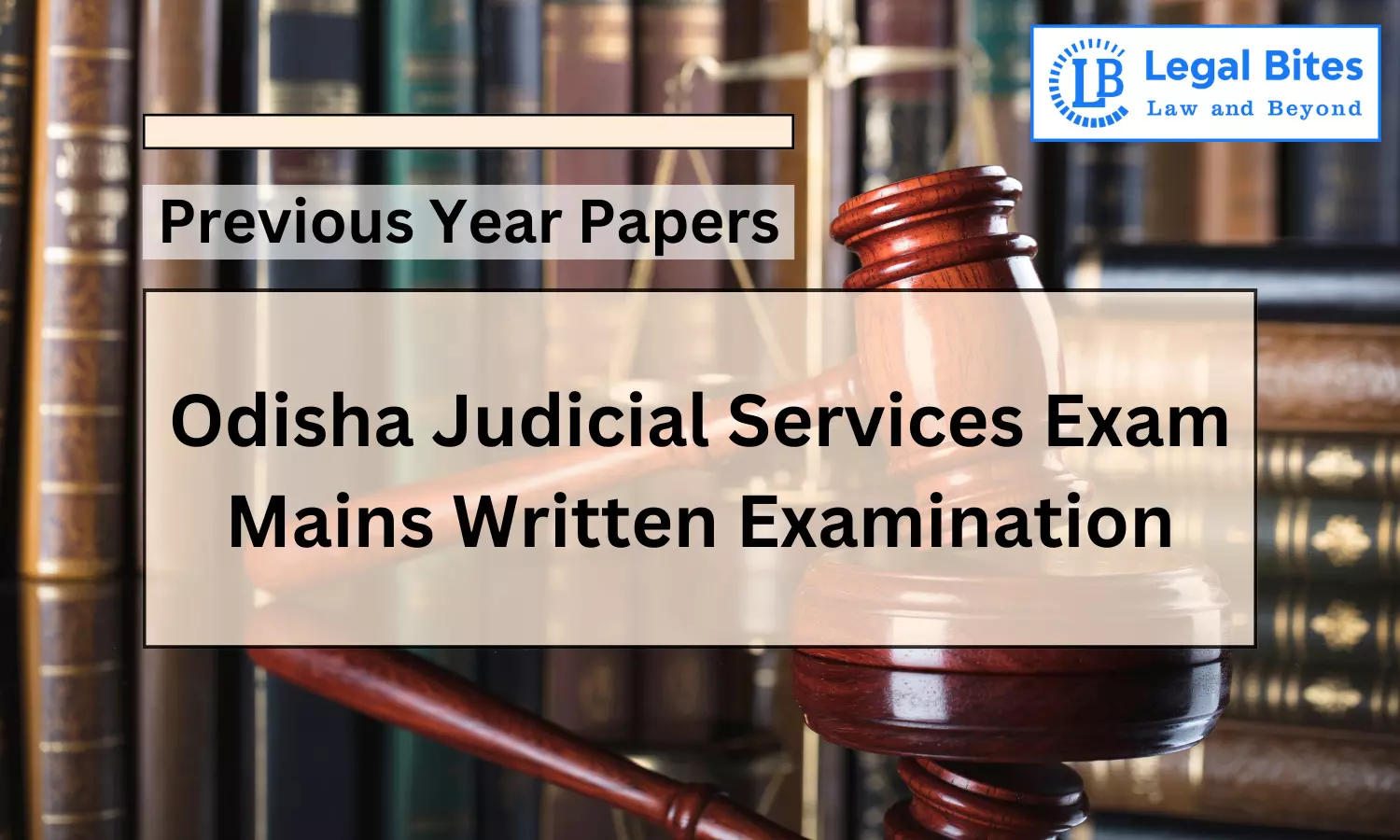Odisha Judicial Services Exam Mains 2018 Optional Paper - I | Law of Crime & Law of Torts
Candidates preparing for Odisha Judicial Services Exam should solve the Odisha Judicial Services Exam Mains 2018 Optional Paper - I (Law of Crime & Law of Torts) and other previous year question papers before they face Prelims and Mains.

Candidates preparing for the Odisha Judicial Services Exam should solve the Odisha Judicial Services Mains 2018 Optional Paper - I (Law of Crime & Law of Torts) and other previous years' question papers as part of their preparation for the Prelims and Mains. Practicing these papers helps aspirants understand the syllabus better and prepare strategically by focusing on the types of questions previously asked. Successful candidates are always aware of the question patterns and techniques employed by the Odisha Judiciary Examination. Every aspirant should adopt this approach at the start of their preparation to gain a comprehensive understanding of the examination pattern and question design.
Odisha Judicial Services Exam Mains 2018 Optional Paper- I | Law of Crime & Law of Torts
Practicing authentic question papers gives candidates a real sense of the exam pattern and question style. Below is the Odisha Judicial Services Mains 2018 Optional Paper - I | Law of Crime & Law of Torts.
Odisha Judicial Services Main Written Examination 2018
Optional Paper-I (Law of Crime & Law of Torts)
Optional Paper-I (Law of Crime & Law of Torts)
Maximum Marks: 150
Specific Instructions:
The questions are of equal value.
Answer six questions, selecting three questions from each Section. All questions carry equal marks
Section - A
Question 1
Discuss unsoundness of mind, infancy and intoxication as general exceptions to criminal liability. (25 Marks)
Question 2
Discuss the stages of a crime with particular reference to the law relating to attempt under the Indian Penal Code. (25 Marks)
Question 3
While there is no specific chapter on crimes against women in the Indian Penal Code, the provisions relating to the same are spread in various parts of the IPC. Elucidate. (25 Marks)
Question 4
Distinguish between murder and culpable homicide, as enumerated in the Indian Penal Code, 1860. (25 Marks)
Question 5
What is 'Theft' under the IPC? Distinguish it with 'Robbery'. (25 Marks)
Question 6
Write illustrative notes on the following: (25 Marks)
(a) The doctrine of 'transferred malice'.
(b) 'Murder' by a life convict.
(c) Wrongful restraint and wrongful confinement.
(d) Grave and sudden provocation.
(e) Criminal misappropriation and criminal breach of trust
Section-B
Question 7
Discuss 'strict liability' in the light of leading cases and distinguish it from the concept of 'absolute liability'. (25 Marks)
Question 8
Explain the law relating to manufacturer's liability in tort with the help of decided cases. (25 Marks)
Question 9
'Ubi jus ibi remedium' - elucidate with the help of appropriate illustrations. (25 Marks)
Question 10
Discuss 'damnum sine injuria' and 'injuria sine damno' with the help of decided cases. (25 Marks)
Question 11
Examine the exceptions to tortuous liability. (25 Marks)
Question 12
Write illustrative notes on the following: (25 Marks)
(a) Res ipsa loquitor.
(b) Nervous shock as a tort.
(c) Liquidated and unliquidated damages.
(d) The principle of 'vicarious liability'
(e) Libel and slander

